Juan de Brugada
Spanish National pattern by Juan de Brugada e hijo, Real Fábrica de Madrid, 1821.
The Spanish National pattern was the orthodox reference for Spanish-suited cards for over 250 years and a basis for several offshoots. This example by Juan de Brugada, Real Fábrica de Madrid (the Royal Manufactory awarded chosen manufacturers the monopoly of playing-card production), is dated 1821.
The four kings are unbearded and their feet are hidden by their robes. The four cavaliers are captivatingly portrayed as horsewomen, with flowing tresses and distinctive U-shaped breasts. This artistic innovation emerged around 1810, potentially influenced by French Aluette packs. This suggests that the Spanish packs were being adapted to accommodate Aluette players, thus making them more accessible. The horses depicted in a rearing stance add a dynamic element to the composition.
Following the closure of the Real Fábrica, numerous new workshops emerged, giving rise to personal interpretations of the National Pattern. These interpretations were tailored for domestic markets or Spanish America and North Africa, often replicating or imitating its distinctive features using newer printing technologies. The decorative motifs on the four and five of coins are often seen in later Belgian copies.
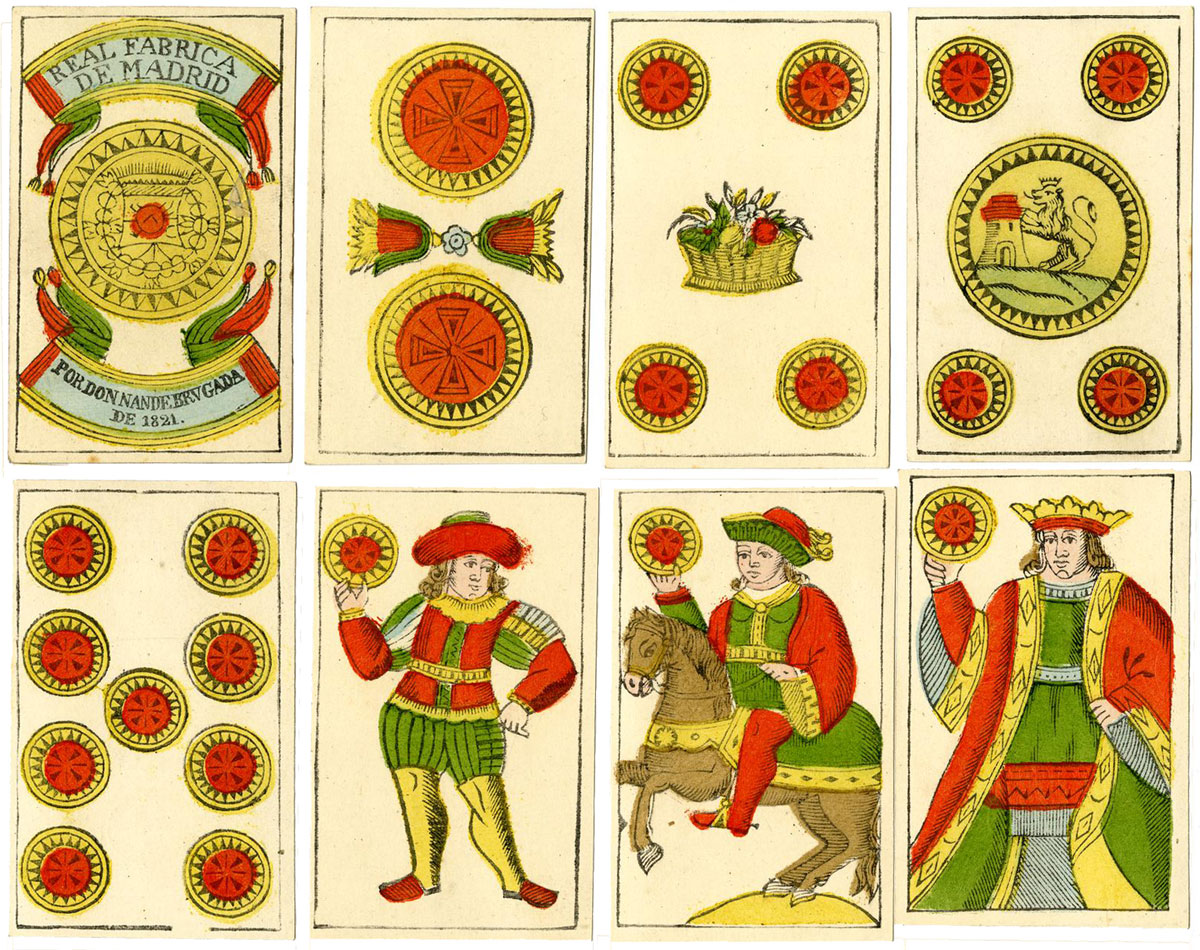
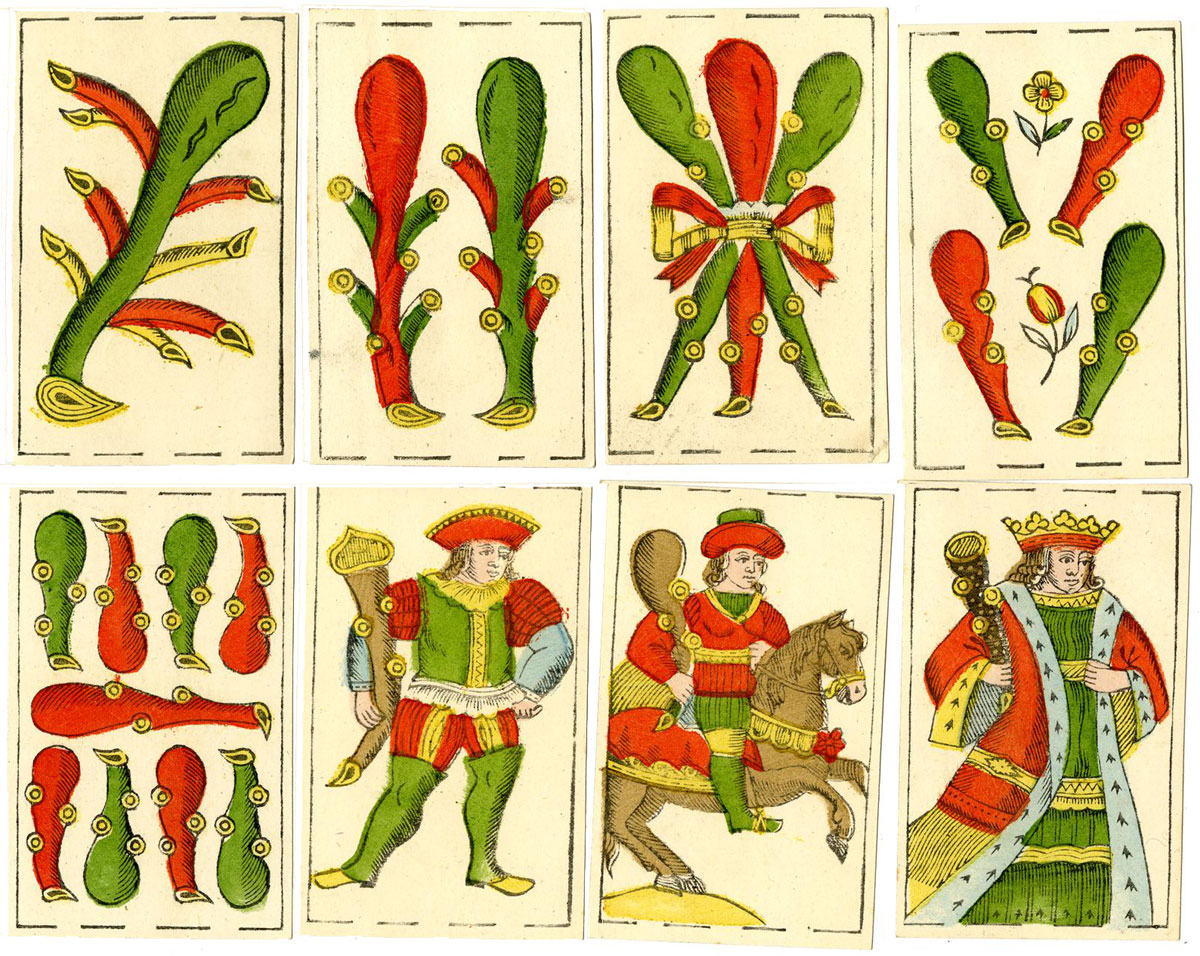
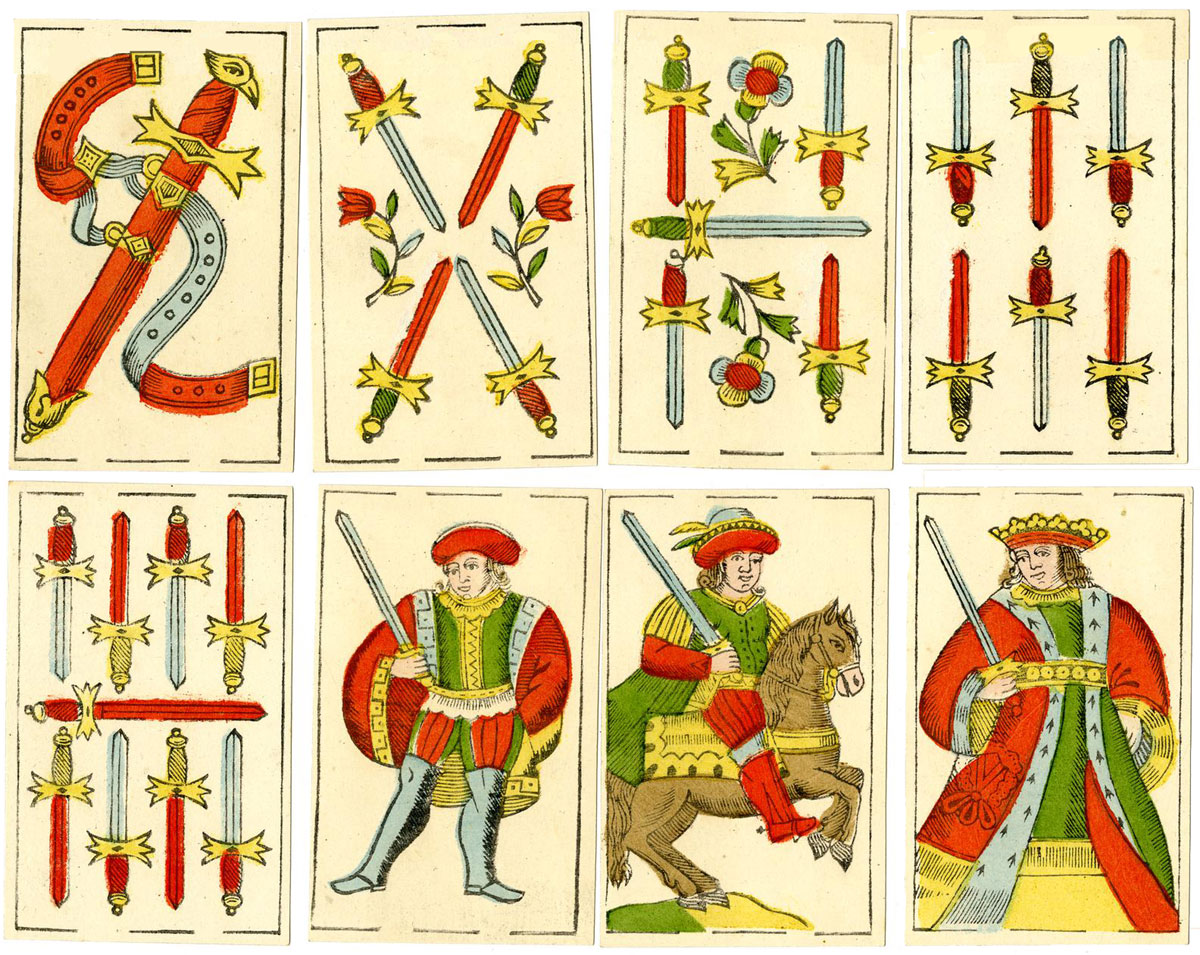
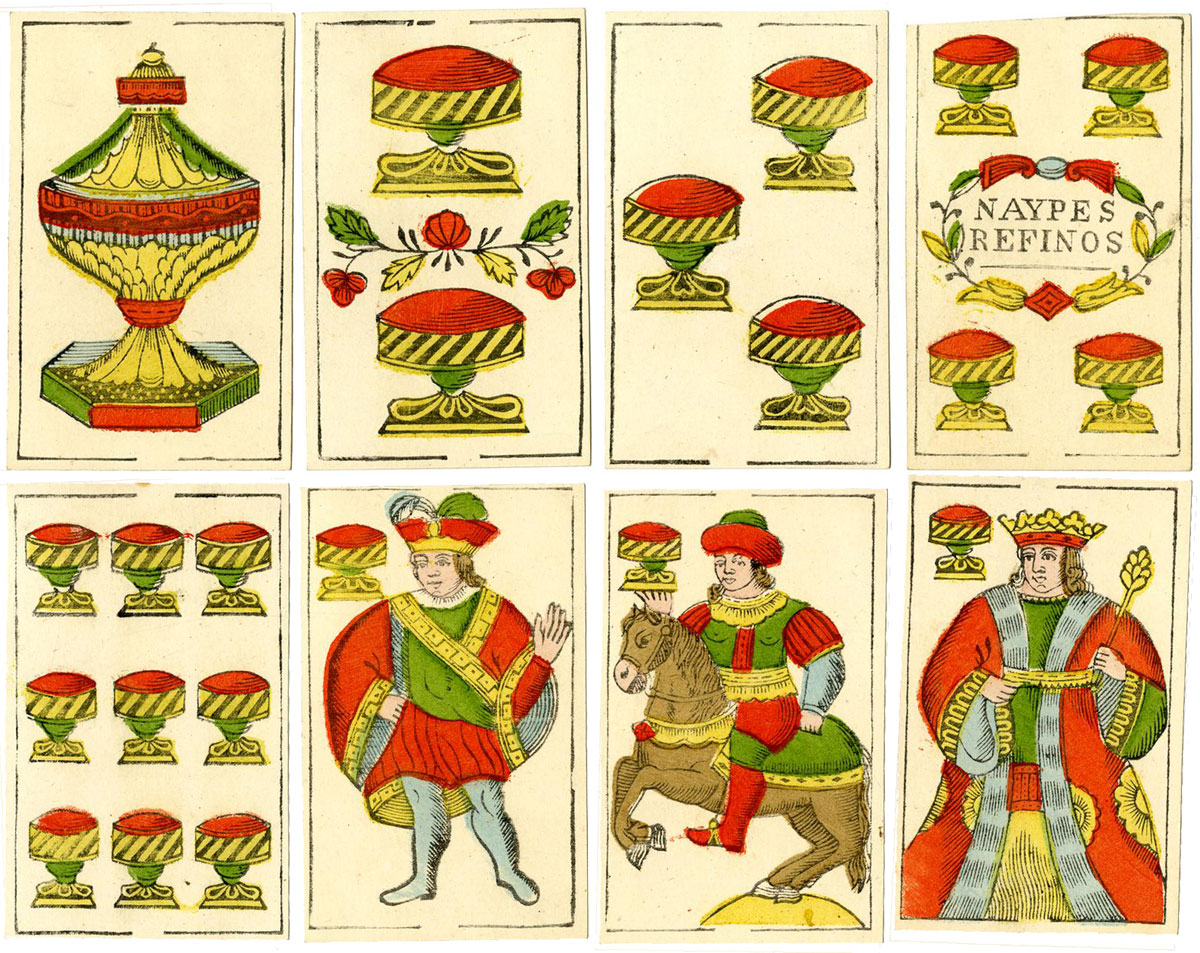
Above: Spanish National pattern by Juan de Brugada, Real Fabrica de Madrid, 1821. 48 cards, hand-coloured woodcut, backs printed in blue with a pattern of stars. The ace of coins reads "Real Fabrica de Madrid. Por Don Ivan de Brugada de 1821"; the 4 of cups has the legend "Naypes Refinos". On the wrapper are the arms of Spain with "Naypes Finisimos fabricados para la diversion de Sus Macesdadis y Real Famills. Real Fabrica de Madrid. Por Don Ivan de Brugada e hijo ano de 1821". © The Trustees of the British Museum • Museum number 1896,0501.850►
By Simon Wintle
Spain • Member since February 01, 1996 • Contact
I am the founder of The World of Playing Cards (est. 1996), a website dedicated to the history, artistry and cultural significance of playing cards and tarot. Over the years I have researched various areas of the subject, acquired and traded collections and contributed as a committee member of the IPCS and graphics editor of The Playing-Card journal. Having lived in Chile, England, Wales, and now Spain, these experiences have shaped my work and passion for playing cards. Amongst my achievements is producing a limited-edition replica of a 17th-century English pack using woodblocks and stencils—a labour of love. Today, the World of Playing Cards is a global collaborative project, with my son Adam serving as the technical driving force behind its development. His innovative efforts have helped shape the site into the thriving hub it is today. You are warmly invited to become a contributor and share your enthusiasm.

Leave a Reply
Your Name
Just nowRelated Articles
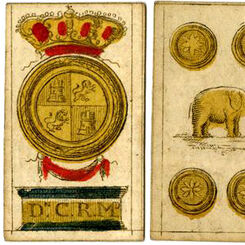
Miniature spanish-suited playing cards
Pack of 48 miniature spanish playing-cards published by C R.

Pere Pau Rotxotxo Puigdoura
Spanish national pattern by Pere Pau Rotxotxo Puigdoura (1766–1797).
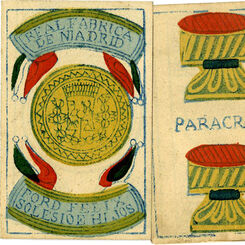
Félix Solesio e Hijos
Félix Solesio e Hijos - Real Fábrica de Madrid - Spanish National pattern for Venezuela
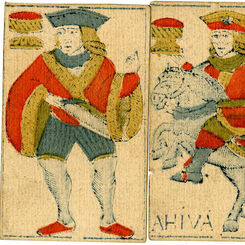
Félix Solesio e Hijos
Félix Solesio e Hijos, Fábrica de Macharaviaya, Spanish National pattern for West Indies, 1801.
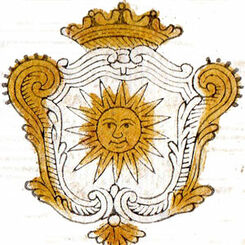
Pedro Rotxotxo
Standard Spanish National pattern by Pedro Rotxotxo, Barcelona, late 18th century.
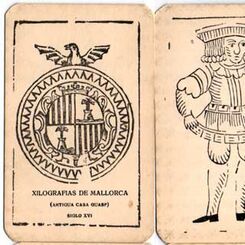
Xilografías de Mallorca
Spanish National pattern re-printed from original woodblocks which are preserved in the monastery at...
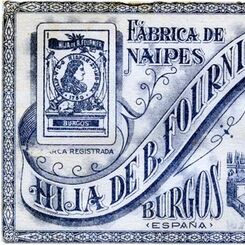
Hija de B Fournier
Having started out as Fournier Hermanos, Burgos in 1860, the company remained in the Fournier family...
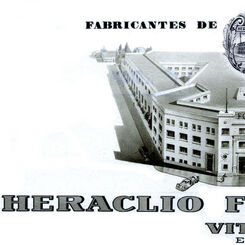
Heraclio Fournier S.A.
Founded in 1868, today it is part of Cartamundi.
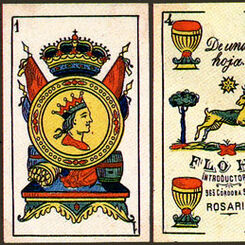
Fló Hermanos y Compañía, importers of playing-cards, Argentina, 1860-1910
Fló Hermanos y Compañía, importers of playing-cards, Argentina, 1860-1910.
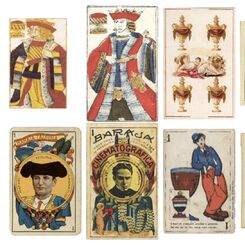
Spanish Playing Cards ~ La Baraja Española
Spain has played a pivotal role in the history of playing cards in Europe and Latin America.
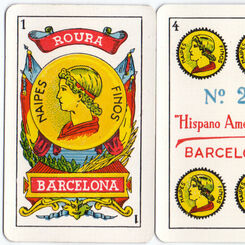
Naipes Finos No.21
Naipes Finos No.21 "Hispano Americana", in the Castilian style, by Juan Roura, Barcelona, c.1940.
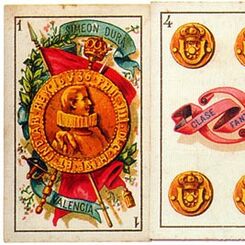
Simeon Durá 1871-1940
Simeon Durá of Valencia was one of Spain's most distinguished playing card manufacturers, flourishin...
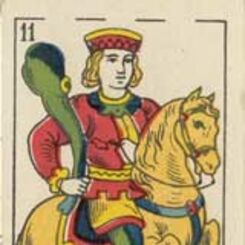
Sebastian Comas y Ricart, Barcelona
“El Ciervo” standard Catalan-type pack made in Barcelona by Sebastian Comas y Ricart, c.1905-10.
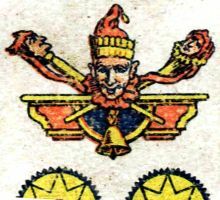
Moliner - Burgos
Cards from a "Nº 4" pack manufactured by Antonio Moliner, Burgos.
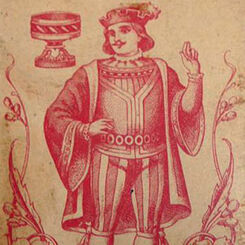
Naipes Comas
Naipes Comas 1797-1992.
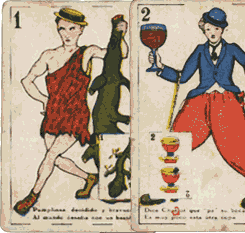
Baraja Artistas del Cine Mudo
Baraja Artistas del Cine Mudo, c.1926.
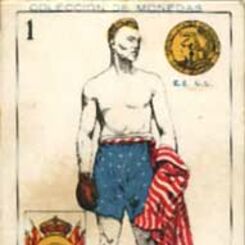
Baraja Boxeo
Baraja de Boxeo, c.1930.
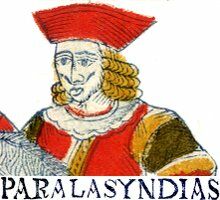
Real Fábrica de Macharaviaya
This is the official Spanish National pattern of the 18th century. Design and production was control...
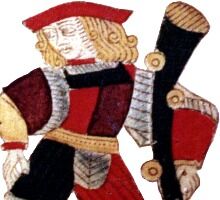
Spanish National Pattern
Probably originating in Spain in the seventeenth century or even earlier, this pattern became strong...

About Heraclio Díaz
Heraclio Díaz lives in the Canary Islands (Spain).
Most Popular
Our top articles from the past 60 days


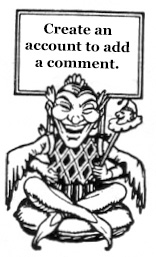 Your comment here. Your comment here. Your comment here. Your comment here. Your comment here. Your comment here. Your comment here. Your comment here. Your comment here. Your comment here. Your comment here. Your comment here. Your comment here. Your comment here. Your comment here. Your comment here. Your comment here. Your comment here. Your comment here. Your comment here. Your comment here. Your comment here. Your comment here. Your comment here. Your comment here. Your comment here. Your comment here. Your comment here. Your comment here. Your comment here. Your comment here. Your comment here.
Your comment here. Your comment here. Your comment here. Your comment here. Your comment here. Your comment here. Your comment here. Your comment here. Your comment here. Your comment here. Your comment here. Your comment here. Your comment here. Your comment here. Your comment here. Your comment here. Your comment here. Your comment here. Your comment here. Your comment here. Your comment here. Your comment here. Your comment here. Your comment here. Your comment here. Your comment here. Your comment here. Your comment here. Your comment here. Your comment here. Your comment here. Your comment here.




















